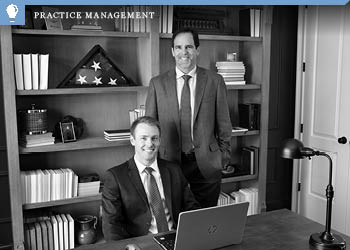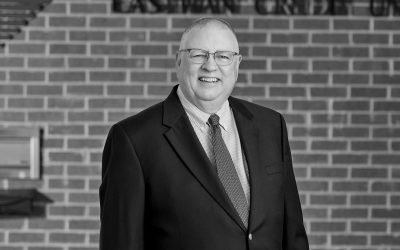Planning for the certainty of uncertainty
Planning for the certainty of uncertainty
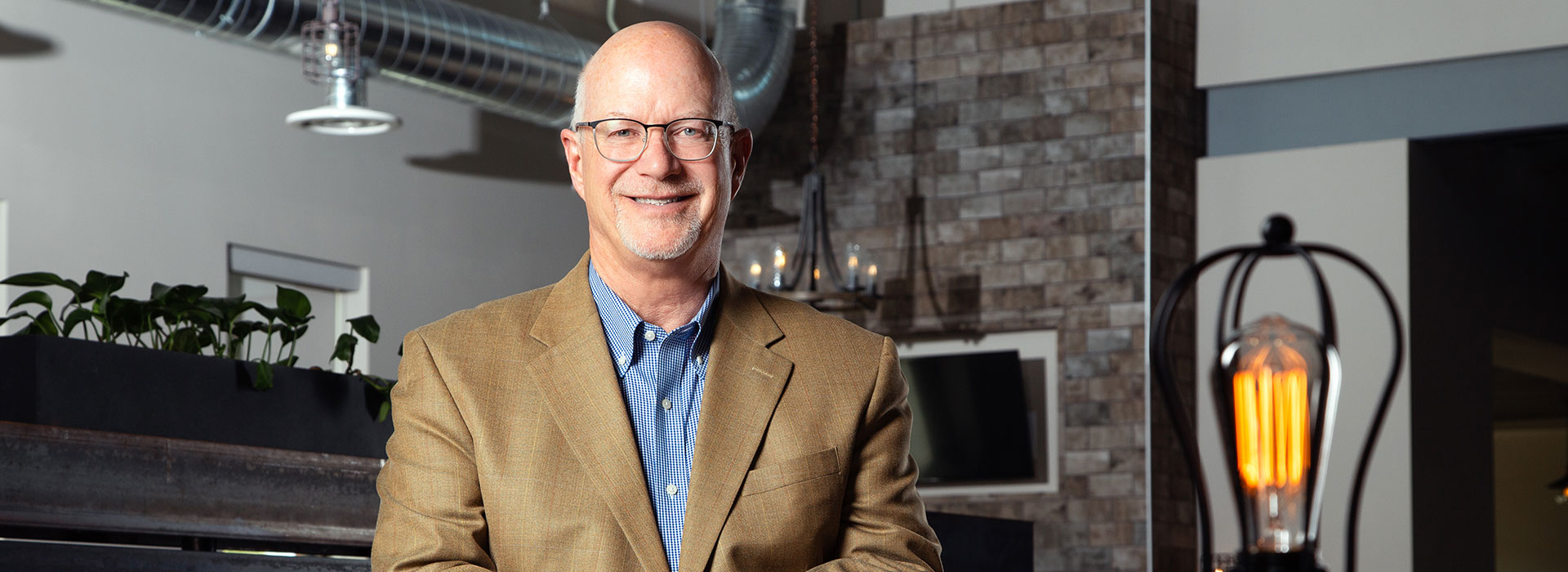
Michael Freemire, BFA • Thornton, CO
Full Circle Financial of Colorado LLC • Cambridge Investment Research Advisors Inc.
Read full biography below
I grew up in Davenport, Iowa, and attended public schools. I stayed busy with sports and got deeply involved in debate and forensics, which helped me develop valuable skills in critical thinking, public speaking, and presenting constructive arguments. I later double majored in business administration and sociology at Coe College, where I gained a solid understanding of both how the economy and markets work and how people tend to respond—psychologically and socially—to those and other forces.
After graduating, I worked briefly in insurance sales before joining a large freight company. Over about 10 years, I advanced through several roles, from line supervisor to sales to corporate marketing. When my brother passed away, I moved back to Davenport to take over the lawn maintenance business my father had started. I was able to grow that significantly and eventually sold it to a national company. During that time, I also founded a strategic marketing firm and served as mayor of Bettendorf, Iowa, for eight years.
Later, my wife and I moved to Colorado, where we have family ties. As I was thinking about my next career move, I had several conversations with my financial advisor. We often talked about how building wealth isn’t just about money—it’s about how it can support your bigger life goals. He asked me to join his firm, but I decided to pursue my licenses and start my own advisory practice, affiliating with his OSJ and Cambridge Investment Research Advisors. I also earned the Behavioral Financial Advisor designation.
My goal has always been to deliver a more personal, tailored planning experience—one that combines comprehensive financial planning and investment management services with the attention and care each client deserves. When I meet with prospective clients, I explain that my experience as a corporate executive, public official, and entrepreneur gives me a broader perspective as an advisor. I’ve led teams, run payroll, managed P&Ls, and overseen plan sponsorship for retirement accounts. I understand the emotional ups and downs of being your own boss. That lived experience is an asset I use in working on behalf of clients.
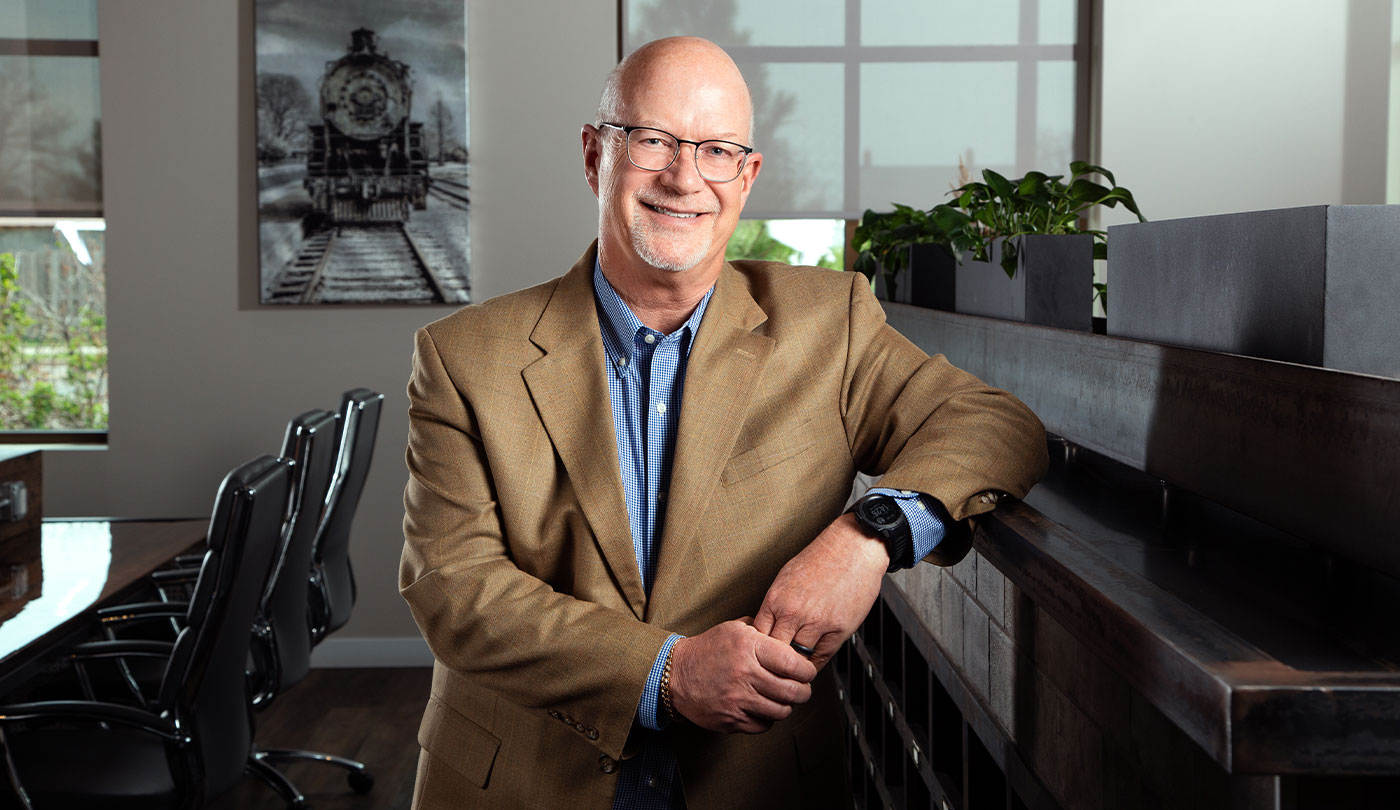
Becoming a Behavioral Financial Advisor reinforced a lot of what I already believed about how I want to serve clients. The coursework introduced me to the Smart Money Philosophy, which is credited to the organizational expert Doug Lennick.
You need two tools as an investor—and as an advisor—to effectively plan for retirement. First, you need a guiding philosophy that explains why being proactive is better than being reactive when it comes to life and investing. That’s where the Smart Money Philosophy comes in. It says, “Diversifying assets and understanding the greatest probability of making money in the future through smart principles is how we aim to manage uncertainty.” At the core of this is diversifying retirement assets and income streams, pulling money from the time-appropriate resource, and having flexibility as market and economic conditions change.
Second, you need a specific plan to apply that philosophy. That’s the idea behind what we call the Full Financial Framework: a logic-guided perspective for helping clients make the best possible financial decisions for their future.
Our model combines traditional finance with psychology and neuroscience. It takes into account how each person is wired to think and react when it comes to money. I love working with interesting people to explore the cognitive biases and emotional responses that may be influencing their financial behaviors.
The Full Financial Framework includes three parts: Full Circle, Full Fit, and Full Future.
Full Circle is about identifying and prioritizing who or what matters most to a client. We ask questions like, “What are you living for? Who are you living for? And, why does all of that matter?” It’s about getting clear on their values and how those can be reflected in their financial and personal goals.
Full Fit is where we turn those values into specific objectives and identify the customized plan elements that will best support them. How comfortable is the client in responding to volatility? How can we manage for the certainty of uncertainty, balancing risk and reward in a way that aligns with each client’s comfort level? We use a sophisticated, interactive planning tool called Income Lab that helps clients see how their plan elements work together, the trajectory of their retirement income, and a real-time view of their entire financial situation.
Full Future brings it all together to help clients plan for the long term in a tax-efficient way. How do I work as a fiduciary focused on a client’s best interests? How can we design a retirement plan that goes beyond meeting basic needs to support their broader life goals? What are the different planning requirements for the three stages of retirement: the go-go years, the slow-go years, and the no-go years? And how do we incorporate risk management, legacy considerations, and estate planning into that bigger picture?
If we’ve done our job properly, we don’t always have to beat the market—we just need to meet or exceed the expectations we’ve set with the client. Our goal is to address every aspect of their financial life through comprehensive, personalized planning—and to involve them fully in the process. When you truly understand what someone wants to achieve and why, you can help them tremendously.
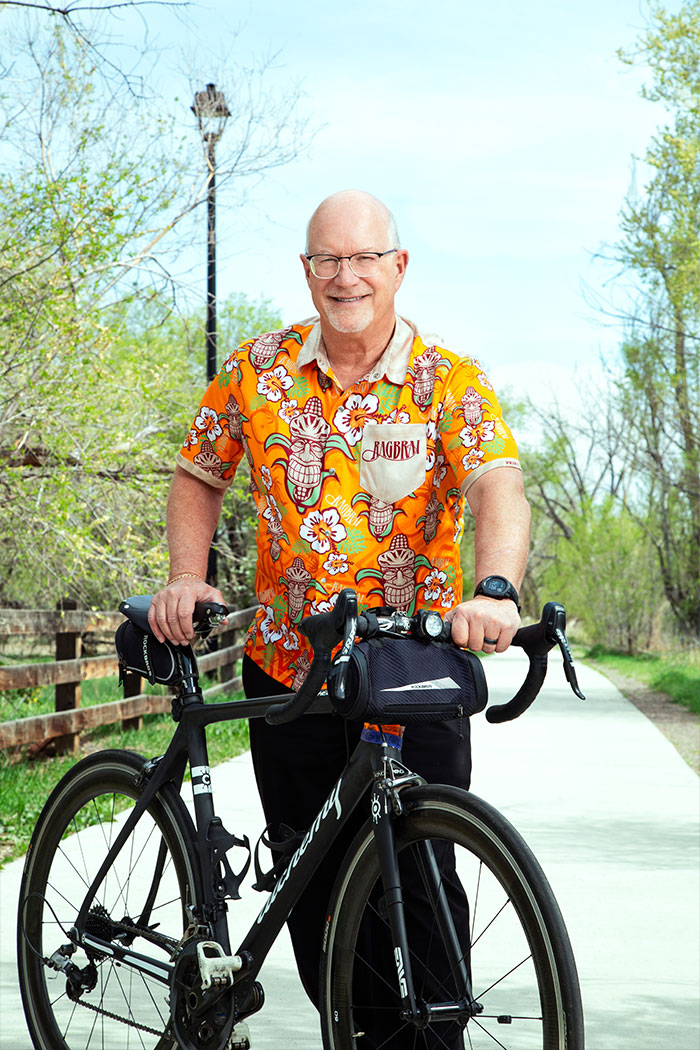 Every client has different needs, tolerance for risk, and financial goals, so we take a customized approach to each portfolio. I believe in proactively navigating market cycles and making adjustments based on both current data and historical perspective. It’s not about predicting the future; it’s about planning for a range of outcomes, managing uncertainty, and adjusting portfolios accordingly.
Every client has different needs, tolerance for risk, and financial goals, so we take a customized approach to each portfolio. I believe in proactively navigating market cycles and making adjustments based on both current data and historical perspective. It’s not about predicting the future; it’s about planning for a range of outcomes, managing uncertainty, and adjusting portfolios accordingly.
I use a bucket strategy that segments assets into short-, mid-, and long-term investments. The first bucket includes cash and cash equivalents, covering two to three years of expenses to help avoid selling assets during a downturn. The second holds income-producing investments, like bonds or dividend-paying stocks, designed to bridge the gap between the first and third buckets. The third bucket focuses on long-term growth, typically with equities and alternative investments. For this portion, we often use a number of third-party professional managers, funds, and ETFs. By rebalancing and replenishing all buckets strategically, we seek to mitigate the impact of market volatility on retirement withdrawals.
Risk management is a key part of our process. It’s not just about mitigating losses—it’s about optimizing for different market conditions. I categorize risk into three layers: market risk, sequence-of-returns risk, and personal risk. To address market risk, I may use a combination of trend-following and tactical asset allocation to reduce exposure during downturns. The bucket strategy helps mitigate sequence-of-returns risk—especially important for retirees—by helping to cover short-term needs while allowing long-term investments time to grow. Personal risk includes factors like cash flow, tax efficiency, insurance, and legacy planning.
I’ve increasingly been using one investment management firm for client 401(k)s. It offers sophisticated actively managed strategies that emphasize risk management and mitigation of steep drawdowns in times of market stress. Clients have been very receptive to that approach for these critical retirement assets.
Ultimately, I try to help clients think in terms of probabilities rather than absolutes. Instead of asking, “Will the market crash?” we ask, “What’s the probability of a downturn, and how are we prepared for it?” That shift in mindset helps clients stay focused on strategy rather than stress, knowing they have a plan that can adapt to whatever the market throws their way.
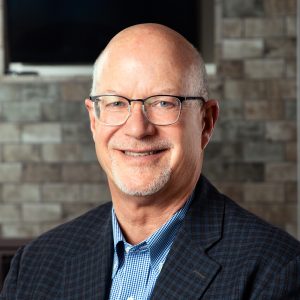 Michael Freemire, BFA, is the founder of Full Circle Financial of Colorado, a full-service advisory firm in Thornton, Colorado. Mr. Freemire helps clients take a comprehensive view of their finances, working to develop “a proactive plan for advancing their financial future.”
Michael Freemire, BFA, is the founder of Full Circle Financial of Colorado, a full-service advisory firm in Thornton, Colorado. Mr. Freemire helps clients take a comprehensive view of their finances, working to develop “a proactive plan for advancing their financial future.”
Raised in Davenport, Iowa, Mr. Freemire grew up in an entrepreneurial household. His father, a Marine veteran and private pilot, founded a successful freight brokerage firm. His mother provided administrative support for the family business. Mr. Freemire attended public schools and was active in the debate and forensics club, which he says helped him “develop valuable skills in critical thinking, public speaking, and presenting constructive arguments.”
Mr. Freemire was a double major in business administration and sociology at Coe College in Iowa. During college, he enjoyed fraternity life and service projects, played intramural sports, and judged high school debate competitions held on campus.
Early in his career, Mr. Freemire worked in insurance sales before joining a large freight company, where he spent about a decade in roles ranging from line supervisor to sales to corporate marketing. After his brother passed away, Mr. Freemire returned to Davenport to run the family’s other business, a lawn maintenance company. He says he significantly expanded the business before selling it to a national company. He also founded a strategic marketing firm and was the mayor of Bettendorf, Iowa, for eight years.
In 2018, Mr. Freemire opened Full Circle Financial of Colorado. He is a Behavioral Financial Advisor (BFA) and is affiliated with Preferred Partners, a large OSJ with Cambridge Investment Research Inc. He is also the author of the book “The Full Financial Framework: The Investor’s Field Guide to Preparing for the Certainty of Uncertainty.”
Mr. Freemire and his wife, a flight attendant and life coach, have three married sons and three grandchildren. In his spare time, he enjoys competitive cycling, golfing, reading, and target shooting. He is an active volunteer and fundraiser for the Crohn’s & Colitis Foundation and the Leukemia & Lymphoma Foundation. He previously served as the chair of the Planning and Zoning Commission for Englewood, Colorado, and is active in civic and community organizations.
Disclosure: Advisory services offered through Cambridge Investment Research Advisors Inc., a registered investment advisor. Full Circle Financial of Colorado and Cambridge are not affiliated.
Photography by Jason Sinn
QUICK TIP
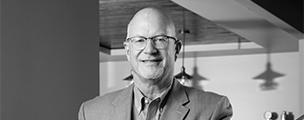
Five lifestyle habits of financially successful people
Michael Freemire, BFA, is the founder of Full Circle Financial of Colorado, a full-service advisory firm in Thornton, Colorado. He helps clients take a comprehensive view of their finances and works with them to develop “a proactive plan for protecting and advancing their financial future.”
In an article he wrote about the journey toward a successful and satisfying retirement, Mr. Freemire poses an important question: “Those dreams of lifestyle freedom also require financial means. How do some of the most vibrant, influential, and fulfilled people in your life and community get to do what ‘they’ do? By leaning into what we call the ‘5 Lifestyle Habits of Financially Successful People.’”
Here are the five habits—or “secrets”—he outlines:
Secret 1: They set goals. Mr. Freemire says these goals should be developed using the SMART (Specific, Measurable, Attainable, Results-based, and Time-sensitive) method. Writing them down, he explains, can provide clarity and a consistent reference point as clients work toward achieving them. “Once you begin reaching your goals,” he says, “you’ll be excited to set the next level.”
Secret 2: They budget and track their expenses. “A written budget can be incredibly insightful for knowing if your spending patterns match what you want your lifestyle to be in retirement.”
Secret 3: They work with experts. “People who retire with the greatest accumulation of wealth typically rely on experts to help them make the best possible choices with their money. Leveraging the expertise of others can sometimes come with a serving of humble pie: we often don’t know what we don’t know.”
Secret 4: They build a strong community. “Who are the people you know, like, and trust who are adding a positive impact on your everyday life? These are the voices speaking into your life when you’re establishing a budget, preparing for a major purchase, changing jobs, moving to a new home, planning for college, or preparing for retirement or any other significant event.”
Secret 5: They take the first step—and then the next. “Financial success doesn’t happen overnight. It’s a continual journey that involves adjusting and course-correcting throughout your life, based on your circumstances.”
RECENT POSTS




